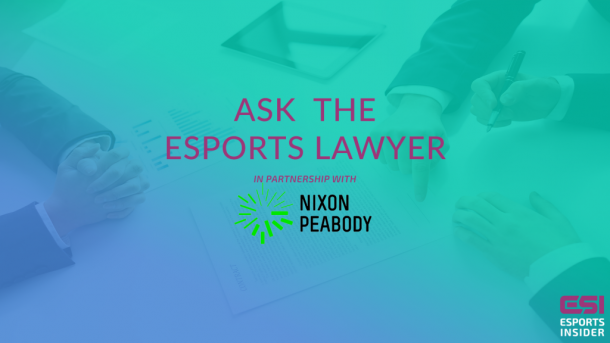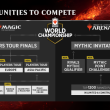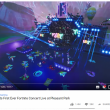Ask the Esports Lawyer – How will FTC loot box investigations impact esports influencers?
In the run-up to the ESI Hall of Fame 2019 at Nixon Peabody in Los Angeles on June 10th, we’ll be running an ‘Ask the Esports Lawyer’ series. In each special guest post by Nixon Peabody, we’ll find out more about the most significant issues in esports law at the moment and how specific government rulings can affect the landscape.
In the first of the series, Michael Strauss, an associate at Nixon Peabody, looks at the Federal Trade Commission’s investigations may impact esports influencers.
Though Washington D.C. appears mired in controversy and stalemate, the federal government’s investigative and enforcement arms remain hard at work. And the video game industry is a prime target.
Due to pressure from the United States Senate (Senator Hassan (D-NH)), the Federal Trade Commission (FTC)—the nation’s top consumer watchdog—has its eyes set on loot boxes. Much has been reported about that inquiry and what it means for the future of in-game purchases generally. But what remains unsaid is how the FTC loot box probe is likely to put the advertising practices of esports brands, teams and players in the FTC’s crosshairs, again.
Pundits like to describe esports as the wild west as if it is an industry without rules and regulations. Though it may be fair to describe stakeholders in the esports industry as in their nascent stages of dealing with federal and state regulations and regulators, industry stakeholders have a history with the FTC and, in particular, the agency’s enforcement of the Guides Concerning the Use of Endorsements and Testimonials in Advertising (the Guides).
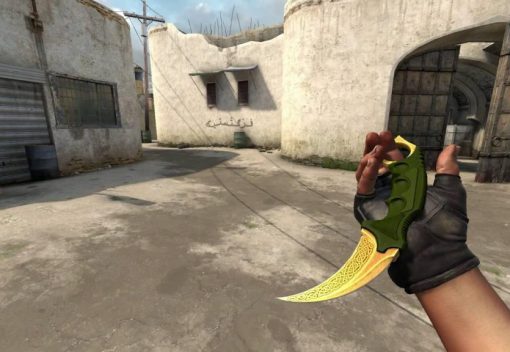
In fact, over the last five years, the FTC has charged three separate esports industry stakeholders; CSGO Lotto (Thomas Cassell and Trevor Martin), Warner Bros. and Machinima with violating federal law (Section 5 of the Federal Trade Commission Act 15 U.S.C. § 45). All three of them failed to comply with the advertising disclosure requirements set out in the Guides in one (or multiple) way(s) or another. With the FTC hammering down on loot boxes, expect it to use that probe as a Roadhog-hook to latch onto more esports stakeholders violating the Guides (yes, that’s two Overwatch puns in one sentence). Now is the time for industry advertisers, teams and players to sure-up their compliance with the FTC’s Guides. Here are some key points for complying.
What’s the general rule?
The FTC Act prohibits unfair or deceptive acts or practices and charges the FTC with defining what that means. The Guides are the FTC’s articulation of what it views as unfair or deceptive acts or practices in the endorsement and testimonial marketing context.
“Brands have entered the esports space wanting to capitalise on an elusive demographic of consumers actively following esports influencers”
Is it an endorsement?
Brands have entered the esports space wanting to capitalise on an elusive demographic of consumers actively following esports influencers. These advertisers hope to market their goods and services through the social media influencing machines that are esports teams and players. Esports teams and players, of course, welcome the marketing dollars and free swag, so they pump out content on Instagram, Twitch, Twitter and YouTube endorsing their new brand partners. If an esports team or player expresses (directly or indirectly) their opinion or belief about a brand, its product or service, that’s likely an endorsement.
Is there a material connection? If the endorser endorsed because he or she was paid or received something else of value (free product, travel, concert tickets, rewards, etc.), then that endorser has a “material connection” with the brand he or she endorsed.
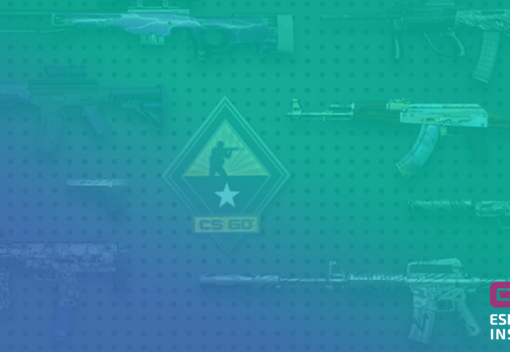
Is disclosure required?
When an endorsement is made by an endorser with a “material connection” to the brand he or she endorsed, then disclosure of that connection is typically required. When and how to disclose consistent with The Guides is a fact-intensive analysis that often requires consultation with legal counsel. Generally speaking, disclosures must be prominently featured on posts and in videos (e.g., above the “show more” section on YouTube, not buried in a laundry list of hashtags on Instagram, or at the beginning of video content, not the end). They must also clearly disclose the material connection (e.g., #ad, #paid, not #sp or #partner).
“Generally speaking, disclosures must be prominently featured on posts and in videos”
Compliant with contracts and policies? Endorsement agreements often require that teams and players comply with “applicable law” and follow the terms of the brand’s social media policy. Failure to comply with the Guides, therefore, can also result in a team or player being in breach of contract with the big brand spending significant marketing dollars on them which, on top of a potential FTC investigation, can present as another layer of liability.
The bottom line is this:
Violating the Guides can have severe consequences for brands, teams and players. While many believe their noncompliance will go undetected, the FTC’s renewed focus on the gaming industry increases the risk that it will ferret out those in the esports community that deceptively endorse brands without disclosure of the connection.
Disclaimer: This post was authored by Michael Strauss, an associate for Nixon Peabody LLP’s Manchester office. You can find out more about Nixon Peabody here.
This article is meant for informational purposes only, and readers should consult a lawyer with questions.

